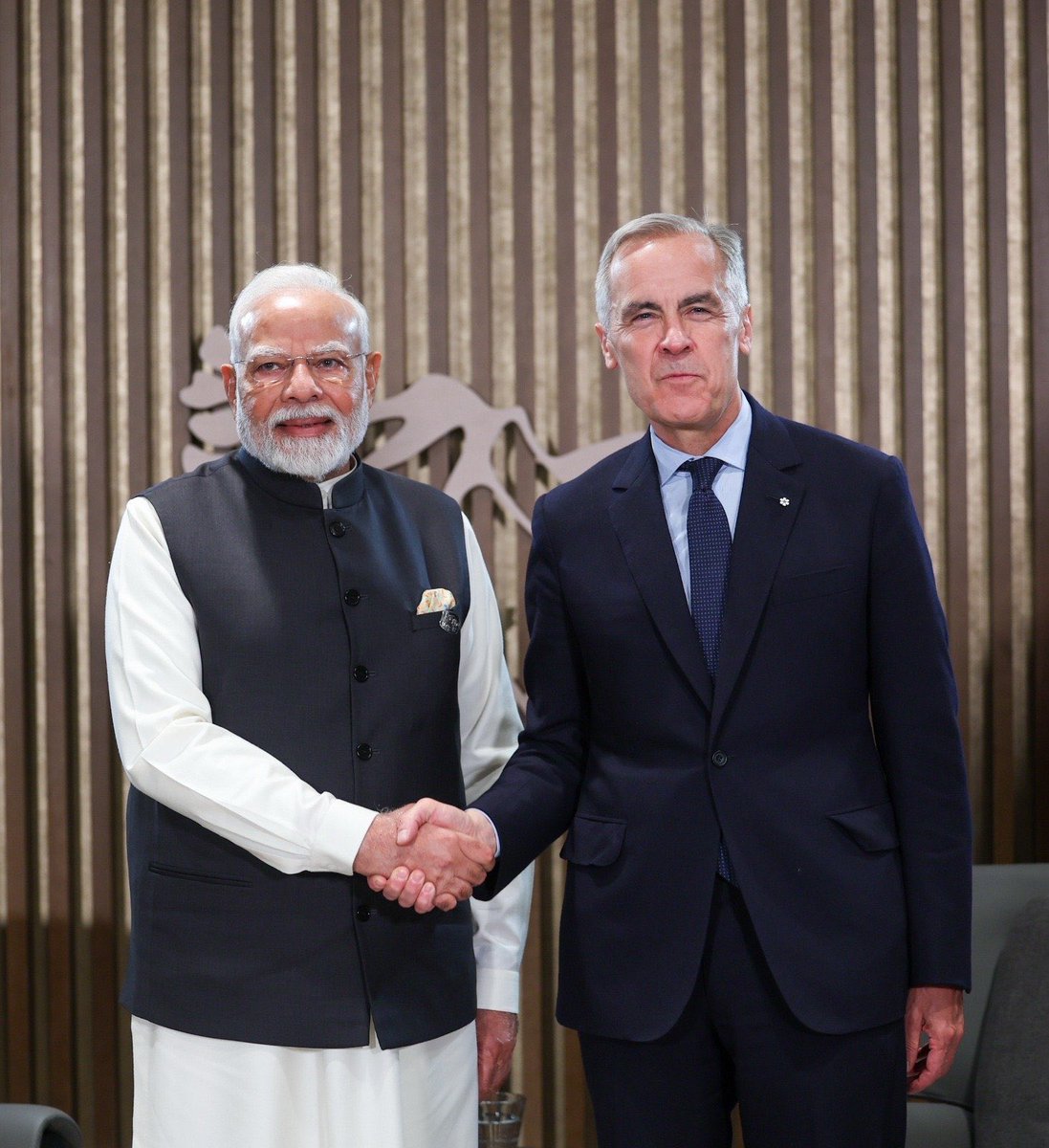Just one day after PM Modi met Canadian PM Mark Carney at the G7 Summit, Canada’s top intelligence agency CSIS finally dropped the diplomatic poker face. For the first time, Canada officially acknowledged what India has known for years – Khalistani extremists are using Canada as a base to plan violence in India. So, was this a sudden awakening? Or was it a strategic “reset” for warming up Indo-Canada ties? Now that Trudeau is history, maybe Carney knows that the Canadian Carnival needs to wake up to reality!
From Denial to Disclosure: Canada Confesses Its Double Game
The Canadian Security Intelligence Service (CSIS) report of 2024 reads like a delayed epiphany. It admits that Canada is the backyard for Khalistani extremist activities for decades.
The report says, “Khalistani extremists continue to use Canada as a base for the promotion, fundraising or planning of violence primarily in India.”
However, this isn’t news to India. For years, New Delhi presented dossiers, protested diplomatic hypocrisy, and watched its concerns be brushed aside by the Trudeau government. The earlier Liberal-run administrations seemed too eager to please the fringe vote banks of NDP and Jgameet Singh. The inter-gang violence that led to the killing of terrorist Hardeep Singh Nijjar only worsened the tension. To hide the ugly underbelly of the Khalistani movement in Canada, NDP sought to confuse the truth with “credible allegations.” And Trudeau did his part by promoting disinformation via the Canadian Parliament.
However, Carney’s Canada seems to understand that India has the receipts for their deceits.
Hence, suddenly, after the G7 handshake and talks of trade, Canada finds its conscience on the Khalistani issue.
Timing Is Everything: Why Did Canada Spill the Beans Now?

Let’s not kid ourselves – Canada’s intelligence doesn’t work on WhatsApp forwards. If CSIS could detail the long history of Canada-based Khalistani extremists, they likely knew this long ago. So why now? Because the political winds have changed and the Canadian economy needs Bharat.
Mark Carney’s rise meant Trudeau’s gaffes could be diplomatically buried.
India’s economy is too big to ignore, and Canada can’t afford a long-term freeze in trade or education cooperation. With billions in trade frozen, Canada needs India – just like the UK or EU does! So the solution? Use the CSIS report as a pressure valve. Admit what was always known. Get Modi’s India back to the table. Hit reset.
Pakistan’s Shadow: ISI’s Canadian Footprints Exposed
In a parallel revelation, CSIS also flagged Pakistan’s interference in Canada’s democratic system. According to a report by NSICOP, Pakistan tried influencing Canadian institutions. This raises an important question – were Canada’s blind spots to Khalistani terrorism actually strategic, given the infiltration of Pakistani-backed sleeper cells?
Did Canada turn a bling to its territorial integrity and sovereignty in the case of Pakistan?
Was the reluctance to act part of a broader geopolitical balancing act between the diaspora vote and national security? Either way, the outcome remains the same: Canada harbored threats that endangered not only India but also its own citizens.
The Indo-Canada Reset: Diplomacy with a Side of Denial
After months of diplomatic chill and chest-thumping rhetoric, Canada seemed to bend the knee at the diplomatic table. The two PMs held a bilateral meeting at the G7 was the nudge both nations needed. Agreements were made to restore High Commissioners, resume trade talks, and put the Najjar fiasco behind them.
Still, let’s not forget – it took Canada 40 years and one geopolitical reality check to admit the truth.
While Khalistani extremism began in Punjab, its base shifted to the US and Canada many decades ago. Since then ISI funds and comforts these fringe elements of Sikh society in Toronto or New York. This fact and reality can’t be rewritten. As the CSIS report went public, Khalistani sympathizers cried foul and anti-India MPs squirmed in Parliament. But the global message is clear: Canada is no longer a safe haven for extremists – at least on paper.
So, here’s a thought: maybe Canada should have actions follow words and reports – to show that its newly-found honesty is long-lasting!


